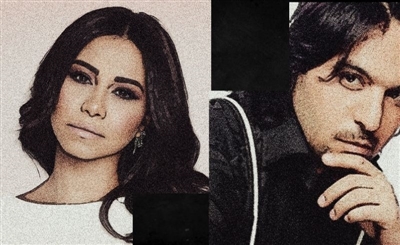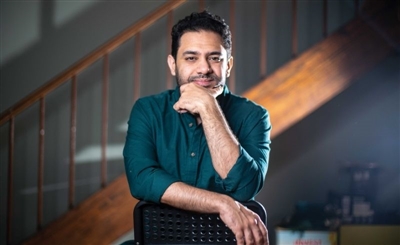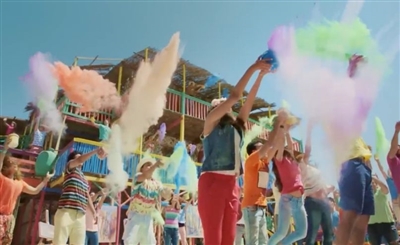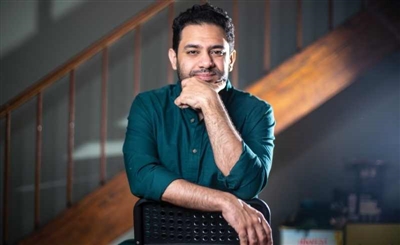Villainy is in its Blu Fiefer Era
In this candid conversation, Blu Fiefer opens up about her journey, her creative process, and the unapologetic power behind her bold new album.
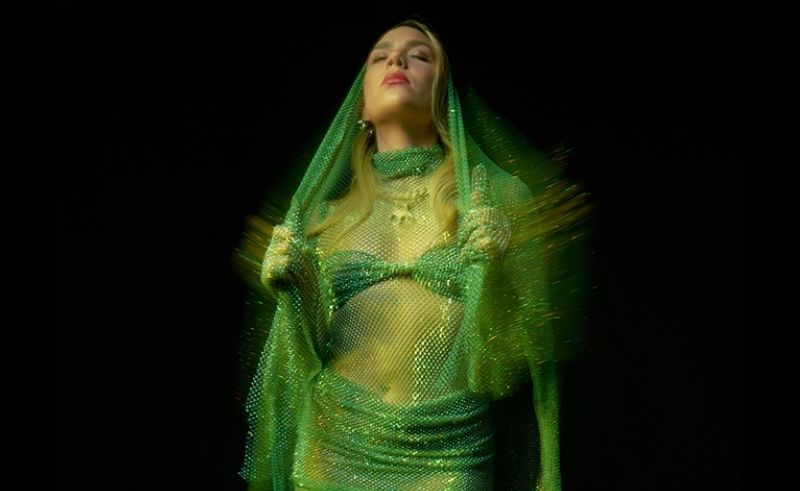
She walks into the room draped in a fur coat, cool sunnies covering her eyes, and an attitude that instantly fills the space — a living embodiment of her new album’s title, Villain Bala Cause. Blu Fiefer is here to exist in her full, vivid power.
Sitting down with SceneNoise, Blu flashes a sly smile and says, “Hi, I’m Blu Fiefer, a Lebanese-Mexican artist, producer, label owner, director, hustler, and pole dancer — hahaha, don’t forget that.” It’s the kind of off-the-cuff self-introduction that only hints at the layers beneath: a multi-dimensional artist whose story is built from roots, rebellion, and relentless self-belief.
When we mention that she comes off online as strong and multi-talented, she bursts out laughing. “Oh, I thought you were gonna say, ‘Who’s that blonde girl?’ Good they think I’m strong,” she teases, adjusting her shades. “I’m in my thirties now. I worked hard for this mindset. My vibe is simple: try me.”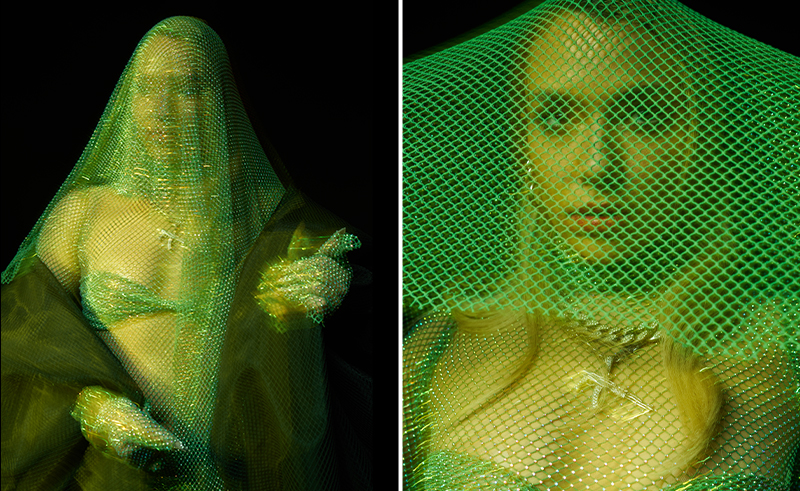
Nature, Nostalgia, and Early Fire
Unlike many artists, Blu lights up when asked about her childhood. “Not a lot of people ask me that,” she says thoughtfully. Born in Mexico before bouncing around the world, she roots her formative memories in a tiny Lebanese town. “Humble beginnings. Green doors, green windows, rooftops, trees everywhere. We’d walk everywhere. Play hide and seek around the trees. It wasn’t developed — just two streets, no commercial shops — but it made me creative. It made me me.”
That sense of self, she says, was fiercely protected by her family. “My privilege was being allowed to be myself. My mom never said ‘this is nice’ about my drawings, she’d say, ‘It’s so you.’ That mindset shaped me. My parents, my little brother — they’re my power. My dad taught me business, my mom taught me to feel. Everything I am came from them.”
Pointing proudly at a tattoo of her eight-year-old brother, she smiles, “I hustle for my family, always.”
At this point, a fly kept buzzing around the room, interrupting the conversation — prompting Blu to break into a hilarious flurry of Lebanese cusswords, mid-laughter and mid-interview, chasing it away with her sunglasses. “Ya bent el—! Ha—!” she shouted, cracking both of us up before slipping right back into her cool composure.

So, Who Is Blu Fiefer?
When asked who she is beyond the job titles, Blu grins: “You’re calling out my sh**, huh?” she jokes. But she doesn’t hesitate with the real answer: “At my core, I’m a storyteller. Whether I’m producing, directing, collaborating, strategizing, it’s always from the lens of storytelling.
“I started thinking I was just gonna be a singer. But when I got into the industry, I realized — I love all of it. Singing, producing, directing… it fulfills me the same way. That’s why I prefer to call myself an artist, not a singer.”
Still, she admits the constant hat-switching is tough. “It’s hard to clock in as the artist, then clock in as the manager, then the producer. But that’s my life.”
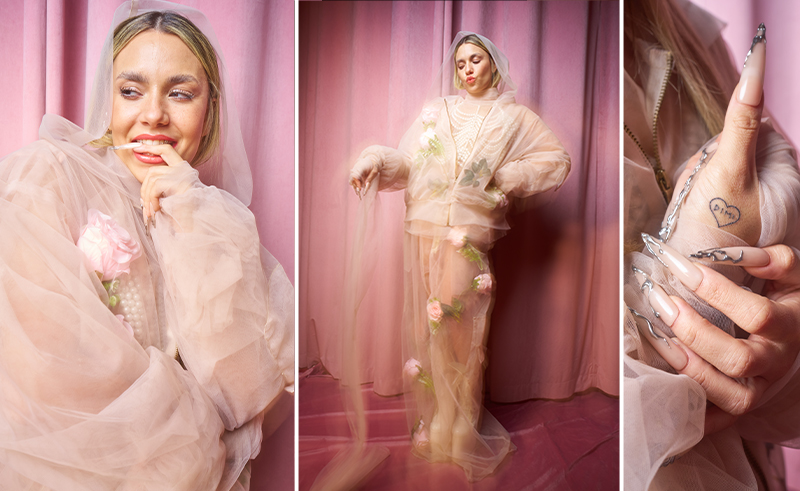
Becoming Blu
Her music journey wasn’t smooth. After dropping out of school, she moved to London to study music. “It was a rocky road. I was broke. I was expecting one thing and found another , but it made me grow. I experimented with different names, different characters. It all shaped the Blu Fiefer you see now.”
Today, her sound refuses easy categorization. “You guys at SceneNoise called me ‘indie pop,’ ‘dark hip-hop,’ ‘experimental,’ ‘rapper sometimes’, and you’re right,” she says. “My umbrella is hip-hop, even if it doesn’t sound like it. It’s an attitude.”
The proudest moment? “When people tell me they hear a track and know it’s me, even if I’m not singing. That’s my ‘Blu-print.’”
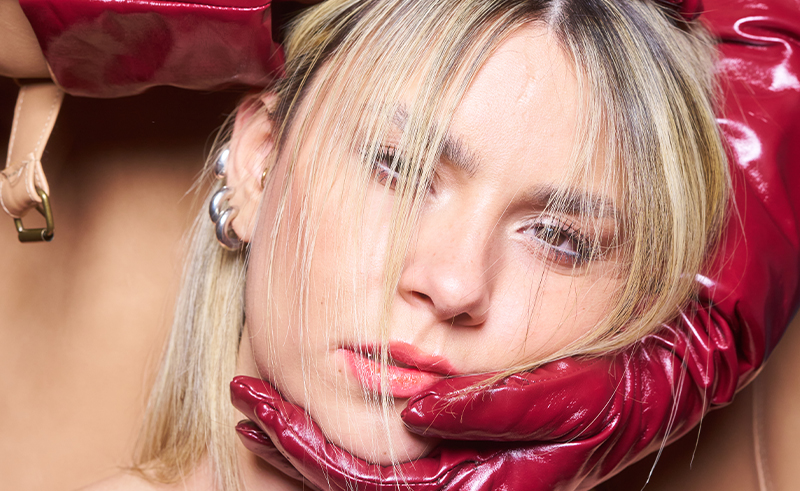
Lifting Others While Building Herself
Having fought through industry hardships herself, Blu now mentors emerging artists through her label, Mafi Budget. “I help them fight the monsters in their heads first. We’re our own biggest enemies,” she says. “It’s not about trends, it’s about authenticity. Then comes education: contracts, distribution, pricing, press, networking… everything.”
When she started out, she reminded us, there were no tools — “no Spotify, just Mazzika with Nancy Ajram and Elissa. No independent scene, no platforms. We had to build it from scratch.”
Mafi Budget was born not out of ambition, but necessity. “It was chaos — COVID, no budgets — so we made something out of nothing. That’s the spirit of it. It’s my baby. But yeah,” she adds candidly, “sometimes the label takes too much of my energy. I’m working on building its foundations properly. It’ll take years, but it’ll inspire creativity. That’s the goal.”
Why “Blu Fiefer”?
The question everyone asks, and she rarely answers, but today, she lets us in.
“‘Blu’ — because it’s the hottest part of the fire. ‘Fiefer’ — it’s strong, edgy. It balances the deep, emotional side of Blu. It just clicked. And yeah, Michelle Pfeiffer energy — sexy, bad bi*** vibes,” she laughs. “When I heard the name, I was like, that’s me. I’m that bi***.”
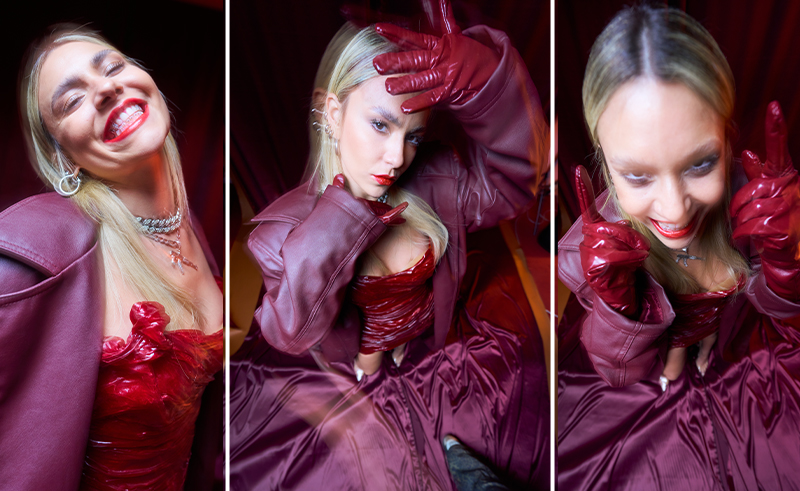
Villain Bala Cause: An Origin Story
Her new album, Villain Bala Cause, is a journey through tragedy, survival, and radical self-acceptance.
“Growing up, I thought if I operated with goodness, good things would happen,” she explains. “Life taught me you have to be a villain sometimes. The title’s sarcastic — of course there’s a cause. But I don’t owe anyone explanations anymore.”
The album, years in the making, charts phases of her life through numbered music videos, evolving visuals, and lyrical vulnerability. “I actually made the music before I wrote any lyrics,” she says. “COVID just poured it all out of me. Every reference, every concept was intentional.”
Creating it was an all-encompassing act of love. “I produced every song, wrote them, directed the videos, mixed most of them, oversaw everything — even the photoshoots and colors. I made videos for every track. Who even does that?” she grins. “Villain Bala Cause is my blueprint, my magnum opus.”
From the chaotic glam of “Nazele Big Champagne” to the Arab-Brat-Summer, tabla-fuelled swagger of “Ghtayta,” Blu Fiefer crafts tracks that are subverted and best performed theatrically, perhaps with designated hand motions at the front of a club.
In Ghtayta, she plays with hyperfeminine aesthetics and satirical alter-egos, flipping the script on Arab pop clichés with a cheeky wink, while Nazele Big Champagne leans into drama and defiance, a champagne-soaked anthem of self-worth and survival. Both tracks, visually and sonically, are part of the "Blu-print": a refusal to be boxed in, a celebration of contradictions, and a declaration that even chaos can be curated when the story is yours to tell.
And she’s nowhere near done. “The album’s out. I’m going on tour. Mafi Budget is growing. I’m already halfway through my second album,” she says with a flash of excitement. “I’m coming for everyone.”
Signing Off
Before we end, we ask her for her best villain laugh. She throws her head back, smiles wide, grillz glinting. “I can’t! You’re too nice,” she laughs. “Maybe just zoom in on my grillz”
Then, one last thing: “Shoutout to Mafi Budget and everyone who worked on it. And a big shoutout to SceneNoise — I see you guys, and you guys see me. You’ve always been truly tapped into what’s happening in the Lebanese scene. It’s inspiring. Thank you.”
Produced by: @scenenoise | @mo4network
SceneNoise Acting Editor-in-Chief: @timmymowafi
Creative Producer: @lordmunky
Fashion & Creative Direction: @kojakstudio
Photographer: @fariszaitoon
Words: @cairoscrybaby
DOP: @David__abdallah
Video Editor: @mariamraymone
Editorial Design: @maleka_reveals
Gaffer: @ahmedgamal2143 @jimmys.light
Lighting Tech: Mazen Mohammed
1st AC: @mahmoud.gehad
Sound Engineer: @eslam.megaaa
Trending This Month
-
Feb 20, 2026



